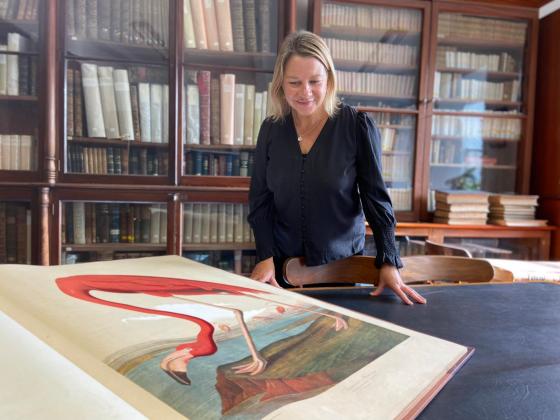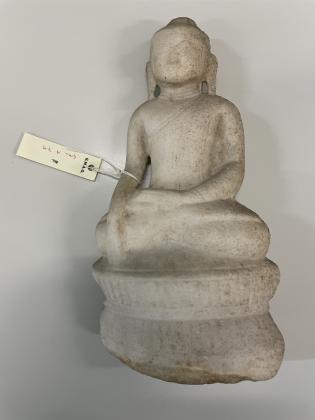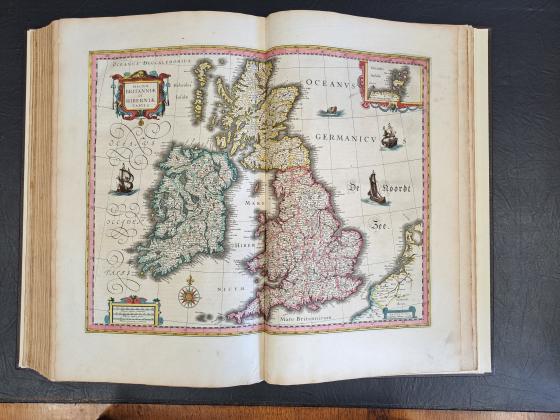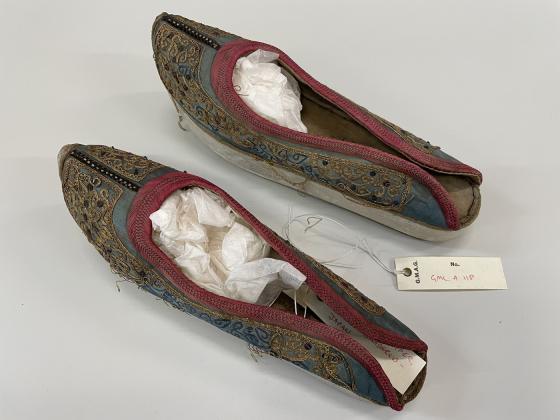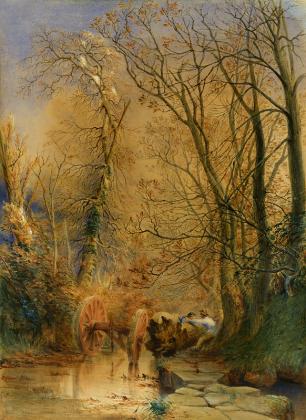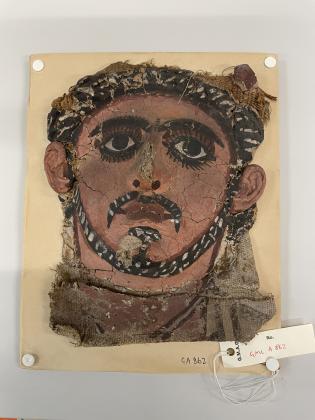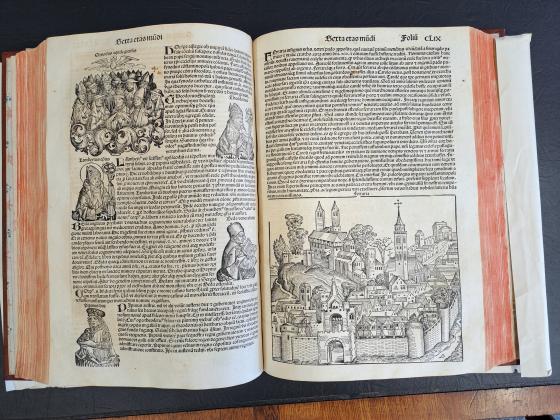We ran out of space...
Explore the story of BOUNDLESS CURIOSITY in more depth with this bonus information that we didn't have room for in the exhibition!
Guille & Allès Biographies

Thomas Guille
(1817-1896)
Thomas's parents were Jean James Guille and Elizabeth Le Lacheur. After their marriage they lived on a farm in Forest, where Thomas grew up.
He went to Forest Parish School, and then had tuition from a Mr Hamilton in Burnt Lane and a Mr Du Putron at Hauteville. Mr Hamilton was a Quaker and a stern disciplinarian.
After returning to Guernsey from New York, Thomas made the acquaintance of Victor Hugo, and often visited him at Hauteville House. In 1880, as Thomas's library project was beginning to take shape, Hugo wrote to him from Paris to "heartily applaud" his friend on his endeavour. Click here to read the letter.
He married Eliza Le Pelley (daughter of Josias Le Pelley) on 20 March 1856. Eliza died in a tragic accident in 1871 when she fell from the cliff path at Le Gouffre. They had no children.
Thomas died on 4 December 1896, at the age of 79. He was buried at Forest Cemetery.

Frederick Allès
(1818-1895)
Frederick was the son of Nicholas Allès. The Allès and Guille families were neighbours in the parish of Forest.
Frederick never married, and had no children. Like the Guilles, most of the Allès family seem to have left Guernsey for the United States around the turn of the 20th Century.
Frederick died on 20 February 1895, aged 77.
VOICES FROM HISTORY
"In the performance of this duty, we have been fortunate enough to touch a chord of the public heart..."
Frederick Allès reflects on his library project.
Guille & Allès Quotes
Thomas Guille on how he could afford to buy so many books:
“The daily habit of smoking and drinking in which so many working-men indulge causes in the long run serious voids in their aggregate earnings…I can certainly say that in my own case it was solely through my having rigidly abstained from these and other equally useless luxuries that I became at the termination of my apprenticeship the happy owner of a valuable collection of books.”
On why the early Library had no system of fines:
“It is not intended to establish a system of fines for the detention of books beyond the time specified by the Rules of the Library; but it is hoped that the subscribers will understand that any want of punctuality on their part in this respect must necessarily cause disappointment to other subscribers who may be waiting for books thus detained.”
(Given we recently abolished fines again, you could say we’ve come full circle!)
Basil Rowswell, one of the Library's first members of staff, on the impact the Library had on Guernsey:
“Islands are always at a disadvantage – the crossing of the water is to many people a serious hindrance as well as a big expense – and Guernsey is no exception to the rule in this respect. For this reason if no other, the Library is an inestimable boon to us natives.”
Newspaper The Guernsey Advertiser on the re-opening of the Library after renovations in 1888:
“The anxious thought and munificent sums of money devoted by Messrs. Guille and Allès to this great and noble work are beyond all praise. The full extent of those blessings to generations yet unborn, of course, in this world they can never know. Yet it is consolatory to reflect, amid the ceaseless mutations of all things earthly, that the beneficial effects of generous deeds never perish; that intellectual light once enkindled is never extinguished; but, as was tersely said nearly two thousand years ago, by the famous Roman poet and Epicurean philosopher, Lucretius, in a well-known classic metaphor: Et quasi cursores vitai lampada tradunt, which freely translated and expanded, means that :
Though sages must die, yet ere their course be run
They pass to others what their toil hath won,
And, like spent runners in the torch-race, hand
Each to fresh athlete Truth’s undying brand.”

VOICES FROM HISTORY
"The Founders are conscious that the chief wants of today may not necessarily be the most pressing requisites of a century hence..."
An extract from the Constitution that Thomas & Frederick wrote for the Library.

